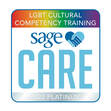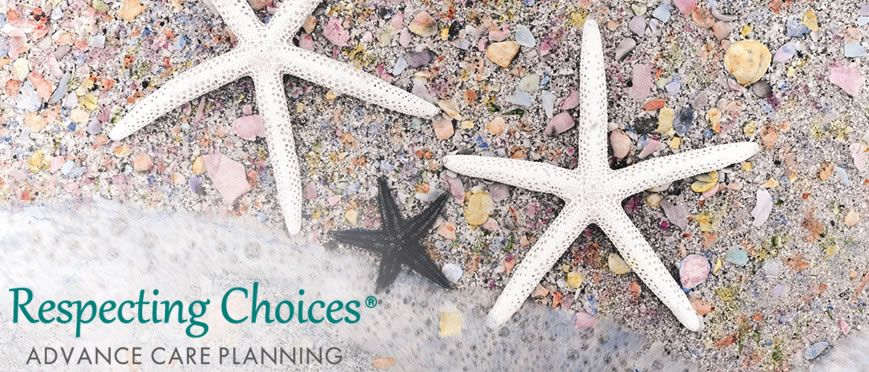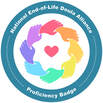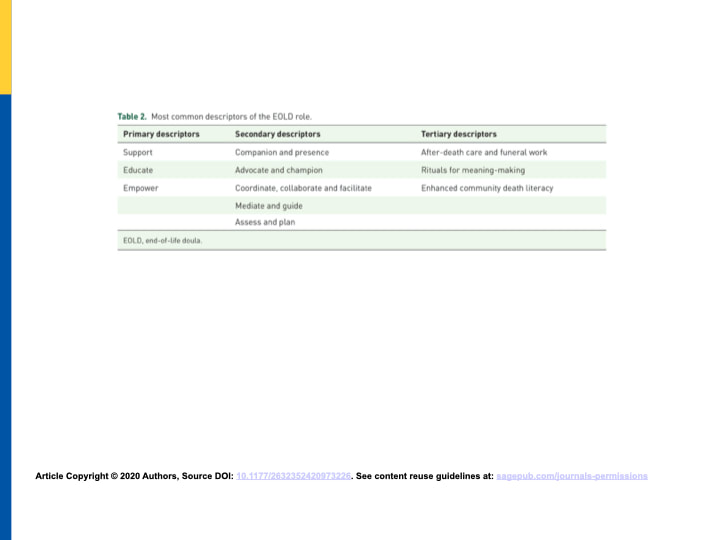 My research collaborator, Dr. Marian Krawczyk of the University of Glasgow End-of-life Studies Group, and myself have recently published an open-access article on the research we did on the end-of-life doula (EOLD) role in four countries. There has been a lot of interest in this work, including a recent town hall with the International Federation on Aging. We are keen to discuss our findings with the broadest audience possible, particularly during the COVID-19 pandemic where end-of-life doulas are providing innovative services to address the myriad needs of families caring for dying individuals. We conducted 22 semi-structured interviews with key innovators and pioneers in the EOLD movement, five each from Australia, and the UK, and six each from Canada and the US. Some of the things I found most interesting about our findings are the broad range of descriptors of the EOLD role (see Table 2, below), the emphasis on community care and responding to the needs of the individual/family rather than imparting one’s own values, and the tension between mainstreaming EOLDs while preserving individuality and integrity as companion and advocate. More papers and more research will emerge from this data, including why the movement has gained such momentum, issues of professionality, standardization and regulation, women’s work, training, and much more. I hope you’ll read it and let me know what you think!
0 Comments
We all know that we live in a death-denying culture. Talking about and preparing for death is not something most people do. Here's a few pointers that I have learned from experience, that may help you do some self-examination and alter your approach to talking with others: I have learned:
|
|
Speak with Merilynne about |
Find A TRAINING for |
find resources |
Website designed by Lee Webster, Side Effects Publishing
|
MAKE A DONATION to support the work of The Dying Year that helps other just starting out in the end of life doula field. Thank you!

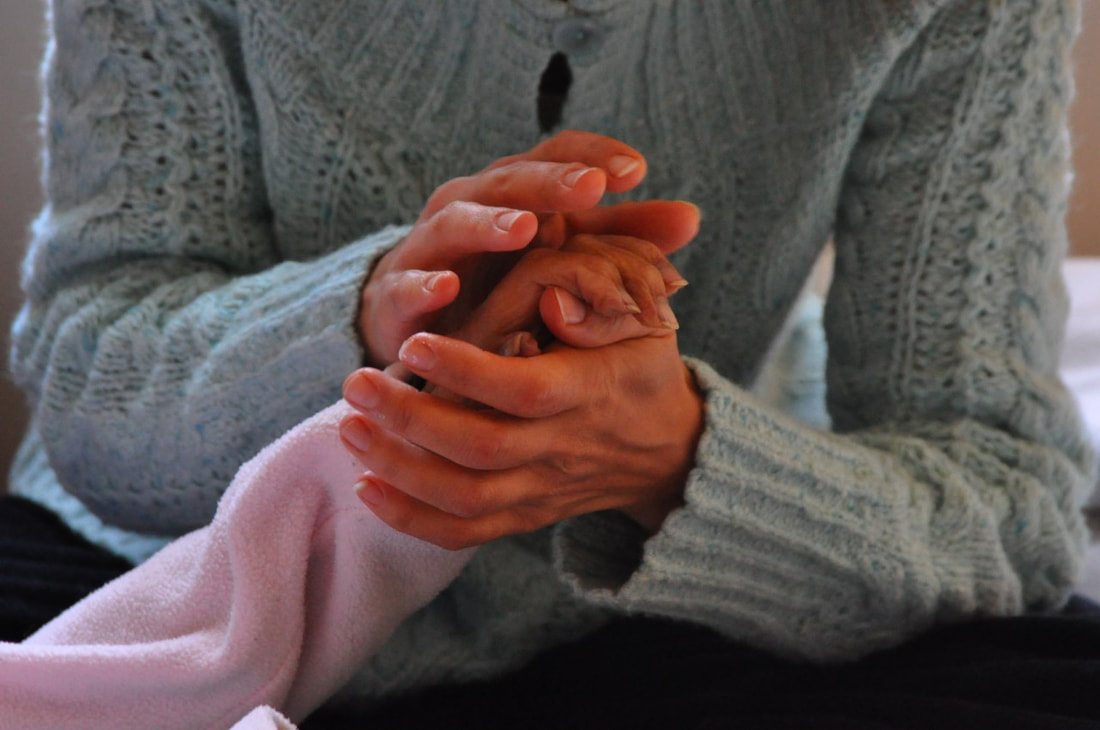
 RSS Feed
RSS Feed
